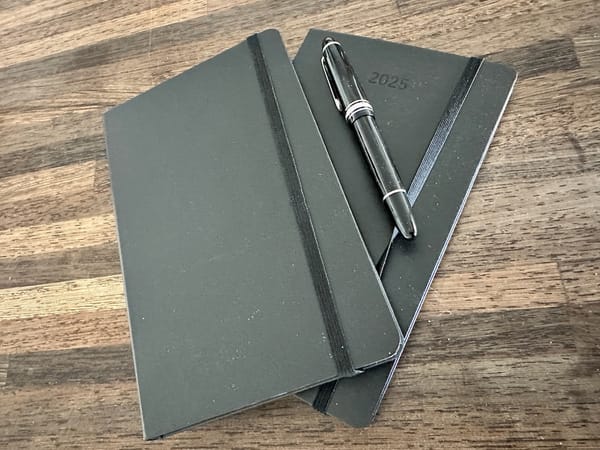If you are in a Customer Success or Service role, you've probably struggled with productivity. Your calendar and inbox are at the mercy of your customers, and careful planning can disappear with a single customer interaction.
I've spent thirty years in customer-facing roles, and have encountered every type of interruption, derailing my plans frequently. When you need to achieve some deep work, some interruption-free time is needed, where you can maximise your productivity. This sometimes feels at odds with any role where you are customer facing and need to be responsive.
I've developed some tactics that I have found helpful to keep my days on track, even when I've needed to be driven by customer needs and their schedules:
Embrace
Firstly - embrace the chaos.
Detaching yourself from the emotions of a plan being derailed ensures you stay insulated from any impact. If you become upset by broken plans, it'll make it harder to get back on track.
Reactive vs Proactive
A key skill is knowing exactly what mode you need to be in at any time. Having the right level of information or alerts set up so that you can switch to a reactive mode when you need to, allows you to focus fully on being proactive.
When you need to focus on customers either through planned (ideal) or unplanned interactions, knowing that you are in a reactive mode helps you stay focused.
Find a friend
Work to find people on your team who can help you when you need to protect your time. Either through delegation or peer to peer support, find people who can support you when deadlines approach and you need to commit to something away from your front line customer commitments.
Knowing that you have someone to hand-off a critical issue to, or to have your back when you need to take yourself away from the front-line to complete a task, is essential.
Protect some time
Isolate slices of time when you can work 'offline', either a day a week or a couple of hours a day that allows you get on with the things that are not customer facing. I often use a window at start and end of each day to plan my actions for the day.
The first session sets the tone for productivity over the day, and I find that if I tick off a key item when I am at my most productive, I can finish other smaller items in between reactive work later in the day.
Over the years I have been able to build in a working from home day, where I don't plan any meetings and focus on my 3P's - planning, preparation and projects.
Even if you have a culture where working from home is not allowed, you could introduce a 'no customer meetings' day where you focus on offline tasks.
Protect more time
Use your calendar to protect the things that get 'bumped' really easily, learning time, meetings, are all important and mustn't be left to chance. For me, things like 1:1’s and customer meetings are non-negotiable.
Your calendar is your friend here, defining regular blocks of time, colour coding and scheduling the important things means that you know exactly how much time you have to be reactive.
One amazing piece of advice I picked up from an old boss was to review my time and divide into key categories. xx% on customer-facing activities, xx% on 1:1's and team development etc.
The key here is finding your rules, and protecting your time.
Optimise the systems
Try and remove the things that slow you down, one specific area is multiple systems. Moving between workflows and systems creates friction that eats away at your time and limits your availability. Look carefully at your workflow and see if you can eliminate the time wasters.
A key productivity decision for me was to remove all the folders in my email.
For many years, I carefully filed things into folders, sub-folders and sub-sub-folders. I soon realised I was spending 3/4 seconds figuring out a home for each message, and STILL searching for things. I moved to a single archive solution, and learned how to search properly - and saved myself the time and effort of filing all those emails!
Reduce decisions
Try and break down decisions to be handled by data and heuristics. I like to use simple processes to help me make decisions which can then be delegated or made into processes.
In my first role as a team leader, I quickly became sucked into schedule and rota discussions. I quickly laid out a set of rules and a simple spreadsheet and eliminated the discussions, to give me back more time.
I also believe that checklists are a great way to take decision making away from your brain, and just ensure that things get done quickly and accurately. Nearly every team leadership role I have held has had some kind of daily or weekly checklist to ensure that I don't have to process reminders.
Final Words
In any customer-facing role that is primarily reactive, it's easy to get sucked into calls and meetings and to see your day disappear. With some light planning and a flexible and agile approach to your time management, you can make and find time to be proactive as well.







Member discussion